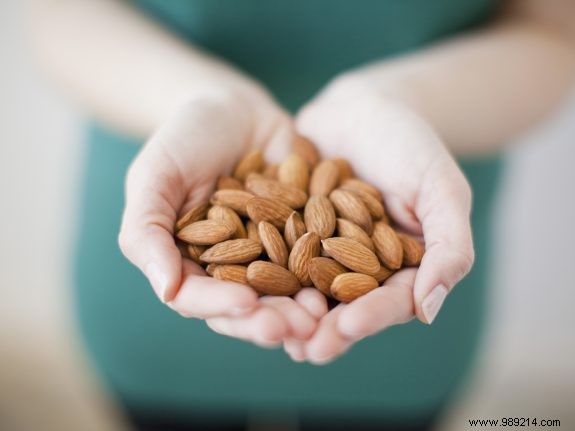
Nuts, seeds, and kernels enjoy a stellar reputation for health, but more isn't always better. As a registered dietitian with a master's in Nutrition & Health, Noor from The Nourishing State explains why loading up on almonds and peanuts may not be ideal.
Noor, a passionate foodie and low-carb nutritionist, empowers women tired of yo-yo dieting to achieve lasting weight loss through personalized low-carb plans and lifestyle coaching.
Nuts, seeds, and kernels are rich in fats—which I embrace as a low-carb expert—but not all fats are equal. Maintaining a healthy balance of omega-3 and omega-6 fatty acids is crucial for optimal body function and weight management. Unfortunately, many popular nuts tip this balance unfavorably.
Omega-3 and omega-6 are essential fatty acids your body can't produce, so they must come from diet. Omega-6 supports growth, development, and skin health, while omega-3 offers powerful anti-inflammatory benefits. The ideal omega-6 to omega-3 ratio is 1:1 to 4:1. Yet, the typical Western diet skews to 16:1—far too much omega-6.
Excess omega-6 relative to omega-3 heightens risks of heart disease, cancer, autoimmune conditions, chronic inflammation, bone weakening (sarcopenia), and obesity. Balancing these fats is vital for long-term health.
Here's a breakdown of total fat, omega-6, omega-3 (per 100g), and ratios for common options. Only a select few hit the ideal balance.
Total fat (per 100g) | Omega-6 (per 100g) | Omega-3 (per 100g) | Omega-6/Omega-3 ratio
Almonds: 53g | 14g | 0.1g | 139:1
Walnuts: 68g | 37g | 7g | 7:1
Pecans: 72g | 21g | 1g | 20:1
Brazil nuts: 67g | 24g | – | 239:1
Macadamia nuts: 76g | 1g | 0.2g | 5:1
Hazelnuts: 63g | 8g | 0.1g | 81:1
Cashews: 49g | 8g | – | 80:1
Pistachios: 48g | 13g | 0.2g | 65:1
Peanuts: 52g | 9g | – | 94:1
Sunflower seeds: 57g | 32g | 0.1g | 321:1
Pumpkin seeds: 47g | 24g | 0.1g | 24:1
Chia seeds: 31g | 6g | 18g | 0.3:1
Pine nuts: 51g | 21g | 1g | 30:1
Flaxseeds: 31g | 4g | 17g | 0.2:1
Hemp seeds: 49g | 29g | 9g | 3:1
Sesame seeds: 55g | 24g | 0.1g | 238:1
Poppy seeds: 36g | 22g | 0.2g | 110:1
Sprinkling pumpkin seeds on yogurt, slathering peanut butter at lunch, and snacking on mixed nuts piles on omega-6 while skimping on omega-3—explaining our Western diet woes and rising chronic issues.
Chia, flax, and hemp seeds shine brightest, with walnuts and macadamias close behind. If weight is a concern, limit almonds, peanuts, Brazil nuts, sunflower, and sesame seeds.
Boost omega-3 with fatty fish like salmon, sardines, herring, mackerel, trout, or eel. Opt for canned tuna or salmon in 100% olive oil—avoid sunflower oil to dodge extra omega-6.
Start your day right with omega-3-packed chia pudding or raspberry pancakes!
Nuts and seeds can enhance your diet, but choose wisely and in moderation. Balance peanut butter or almonds with chia or flax in yogurt, and eat fatty fish weekly.
For more on sustainable weight loss, low-carb eating, and healthy living, follow Noor on Instagram @thenourishingstate or visit her website.
Text: The Nourishing State/Noor, image: Getty Images
Need inspiration? Check out Happy by Carolina van Dorenmalen (Kosmos Uitgevers, ISBN 9789021583686).